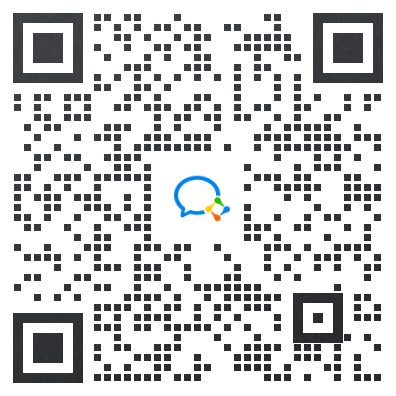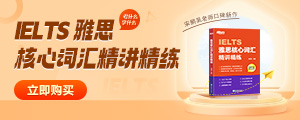
雅思免费课程NEW
剑桥题库机考HOT
雅思水平测试NEW
雅思选课中心
雅思听力
雅思口语
雅思阅读
雅思写作
雅思问答
雅思考试机经回忆
雅思动态NEW
雅思备考指导
雅思模拟题
雅思核心词汇NEW

雅思备考规划
扫码添加助教免费咨询雅思备考规划

扫码关注回复雅思获取最新雅思口语题库和备考资料
新东方在线雅思网为大家带来了雅思阅读练习:Why are we so gullible。正文都做了贴心的注解,文章包含雅思词汇、例句讲解。希望以下内容能够为同学们的雅思备考提供帮助。新东方在线雅思网将第一时间为大家发布最新、最全、最专业的雅思报名官网消息和雅思考试真题及解析,供大家参考。
If you ever need proof of human gullibility(易上当,轻信), cast your mind back to the attack of the flesh-eating bananas. In January 2000, a series of chain emails began reporting that imported bananas were infecting people with “necrotizing fasciitis” – a rare disease in which the skin erupts into livid(青紫色的)purple boils before disintegrating and peeling away from muscle and bone.
According to the email chain, the FDA was trying to cover up the epidemic(流行病) to avoid panic. Faced with the threat, readers were encouraged to spread the word to their friends and family.
The threat was pure nonsense, of course. But by 28 January, the concern was great enough for the US Centers for Disease Control and Prevention to issue a statement decrying(谴责;反对)the rumour.
Did it help? Did it heck. Rather than quelling the rumour, they had only poured fuel on its flames. Within weeks, the CDC was hearing from so many distressed callers it had to set up abanana hotline. The facts became so distorted(歪曲的) that people eventually started to quote the CDC as the source of the rumour. Even today, new variants(变体) of the myth have occasionally reignited those old fears.
The banana apocalypse(末日;大灾难) may seem comical in hindsight, but the same cracks in our rational thinking can have serious, even dangerous, consequences.
We may laugh at these far-fetched(子虚乌有的) urban myths – as ridiculous as the ongoing theory that Paul McCartney, Miley Cyrus and Megan Fox have all been killed and replaced with lookalikes. But the same cracks in our logic allow the propagation of far more dangerous ideas, such as the belief that HIV is harmless and vitamin supplements can cure AIDS, that 9/11 was an ‘inside job’ by the US government, or that a tinfoil(锡箔)hat will stop the FBI from reading your thoughts.
Why do so many false beliefs persist in the face of hard evidence? And why do attempts to deny them only add grist to the rumour mill? It's not a question of intelligence – even Nobel Prize winners have fallen for some bizarre(奇怪的) and baseless theories. But a series of recent psychological advances may offer some answers, showing how easy it is to construct a rumour that bypasses(绕开) the brain’s deception filters.
One, somewhat humbling, explanation is that we are all “cognitive misers” – to save time and energy, our brains use intuition rather than analysis.
As a simple example, quickly answer the following questions:
“How many animals of each kind did Moses take on the Ark?”
“Margaret Thatcher was the president of what country?”
Between 10 and 50% of study participants presented with these questions fail to notice that it was Noah, not Moses, who built the Ark, and that Margaret Thatcher was the prime minster, not the president – even when they have been explicitly(明确地) asked to note inaccuracies.
Known as the “Moses illusion”, this absentmindedness illustrates just how easily we miss the details of a statement, favouring the general gist in place of the specifics. Instead, we normally just judge whether it “feels” right or wrong before accepting or rejecting its message. “Even when we ‘know’ we should be drawing on facts and evidence, we just draw on feelings,” says Eryn Newman at the University of Southern California, whose forthcoming paper summarises the latest research on misinformation.
Based on the research to date, Newman suggests our gut reactions swivel(旋转) around just five simple questions:
· Does a fact come from a credible source?
· Do others believe it?
· Is there plenty of evidence to support it?
· Is it compatible with what I believe?
· Does it tell a good story?
Crucially, our responses to each of these points can be swayed by frivolous(轻率的,不重要的), extraneous(外在的), details that have nothing to do with the truth.
Consider the questions of whether others believe a statement or not, and whether the source is credible. We tend to trust people who are familiar to us, meaning that the more we see a talking head, the more we will begrudgingly(不情愿地)start to believe what they say. “The fact that they aren’t an expert won’t even come into our judgement of the truth,” says Newman. What’s more, we fail to keep count of the number of people supporting a view; when that talking head repeats their idea on endless news programmes, it creates the illusion that the opinion is more popular and pervasive(普遍的) than it really is. Again, the result is that we tend to accept it as the truth.
Sticky nuggets
Then there’s the “cognitive fluency” of a statement – essentially, whether it tells a good, coherent story that is simple to imagine. “If something feels smooth and easy to process, then our default(默认) is to expect things to be true,” says Newman. This is particularly true if a myth easily fits with our expectations. “It has to be sticky – a nugget or soundbite that links to what you know, and reaffirms your beliefs,” agrees Stephan Lewandowsky at the University of Bristol in the UK, whose work has examined the psychology of climate change deniers.
A slick(熟练的;机灵的) presentation will instantly boost the cognitive fluency of a claim, while raising its believability. In one recent study, Newman presented participants with an article (falsely) saying that a well-known rock singer was dead. The subjects were more likely to believe the claim if the article was presented next to a picture of him, simply because it became easier to bring the singer to mind – boosting the cognitive fluency of the statement.(如果在这篇文章的旁边配上他的照片,受试者就更容易相信这个说法,因为照片更容易让他们想起这位歌手来--从而提高了这个说法的认知流畅度。) Similarly, writing in an easy-to-read font, or speaking with good enunciation, have been shown to increase cognitive fluency; indeed, Newman has shown that something as seemingly inconsequential(不重要的) as the sound of someone’s name can sway us; the easier it is to pronounce, the more likely we are to accept their judgement.
In light of(根据) these discoveries, you can begin to understand why the fear of the flesh-eating bananas was so infectious(传染性的). For one thing, the chain emails were coming from people you inherently trust – your friends – increasing the credibility of the claim, and making it appear more popular. The concept itself was vivid and easy to picture – it had high cognitive fluency. If you happened to distrust the FDA and the government, the thought of a cover-up would have fitted neatly into your worldview.
That cognitive miserliness can also help explain why those attempts to correct a myth have backfired(逆火;适得其反) so spectacularly, as the CDC found to their cost. Lab experiments confirm that offering counter-evidence only strengthens someone’s conviction. “In as little as 30 minutes, you can see a bounce-back effect where people are even more likely to believe the statement is true,” says Newman.
The problem, she says, emerges from our deeply flawed memories. Correcting the facts “would work very well if we could play back our memories as if they were recorded on video, but years of research show the memory is not perfect – we fill in gaps and we lose information,” she says.
Fraying(磨损的) beliefs
As a result of these frailties(虚弱;脆弱), we are instantly drawn to the juicier details of a story – the original myth – while forgetting the piddling little fact that it’s been proven false. Worse still, by repeating the original myth, the correction will have increased the familiarity of the claim – and as we’ve seen, familiarity breeds believability. Rather than uprooting(根除;灭绝) the myth, the well-intentioned correction has only pushed it deeper.
A debunked(被揭露的) myth may also leave an uncomfortable gap in the mind. Lewandowsky explains that our beliefs are embedded in our “mental models” of the way the world works; each idea is interlinked with our other views. It’s a little like a tightly bound book: once you tear out one page, the others may begin to fray as well. “You end up with a black hole in your mental representation, and people don’t like it.” To avoid that discomfort, we would often rather cling to the myth before our whole belief system starts unravelling(解体).
Fortunately, there are more effective ways to set people straight and make the truth stick. For a start, you should avoid repeating the original story (where possible) and try to come up with a whole alternative to patch up the tear in their mental model. “If I tell you the Moon is not made of cheese, then you find it difficult to give up on the belief – but if I say it’s not cheese but rock, you say ‘OK, fine’, because you still have an idea of what the Moon is like,” explains Lewandowsky.
Newman agrees it’s a helpful strategy. For instance, when considering the fears that MMR vaccines may be linked to autism(自闭症), she suggests it would be better to build a narrative around the scientific fraud(欺骗) that gave rise to the fears – rather than the typical “myth-busting” article that unwittingly reinforces the misinformation. Whatever story you choose, you need to increase the cognitive fluency with clear language, pictures, and good presentation. And repeating the message, a little but often, will help to keep it fresh in their minds. Soon, it begins to feel as familiar and comfortable as the erroneous(错误的) myth – and the tide of opinion should begin to turn.
At the very least, staying conscious of these flaws in your thinking will help you to identify when you may be being deceived. Both Newman and Lewandowsky point out that there is a flurry(一阵风雪) of misinformation flying around the forthcoming US presidential elections, as seen in Donald Trump’s claims that Mexican immigrants bring sexual violence and drug trafficking and Hillary Clinton’s opinion that Isis are using videos of Trump to recruit terrorists. (Neither statement held up to fact-checking.)
It’s always worth asking whether you have thought carefully about the things you are reading and hearing. Or are you just being a cognitive miser, persuaded by biased(有偏见的) feelings rather than facts? Some of your dearest opinions may have no more substance(物质;实质;基础) than the great banana hoax(骗局) of the year 2000.
Vocabulary
gullible 容易被骗的
gullibility 轻信;容易上当
livid 青紫色的
epidemic 流行的;流行病
decry 谴责;指责
distort 歪曲;
variant 变体
apocalypse 末世;大灾难
far-fetched 子虚乌有的
bizarre 奇怪的
bypass 绕过
explicitly 明确地
swivel 转动
frivolous 轻浮的
extraneous 外在的
begrudgingly 不情愿地
pervasive 普遍的
default 默认(值)
slick 熟练的;机灵的
inconsequential 不重要的
in light of 根据
infectious 传染的
backfire 逆火;适得其反
frailty 虚弱;弱点
uproot 根除
debunk 揭露
unravel 解体
autism 自闭症
fraud 欺诈
erroneous 错误的
flurry 一阵风雪
biased 有偏见的
substance 物质;基础
hoax 欺骗;闹剧
本文关键字: 雅思阅读

 资料下载
资料下载
雅思写作高频词汇PDF下载
发布时间:2023-08-26添加新东方在线雅思助教号
回复【200】获取
590组雅思阅读写作必背短语PDF版下载
发布时间:2023-08-09添加新东方在线雅思助教号
回复【590】获取
雅思学术词汇搭配表PDF版下载
发布时间:2023-08-04添加新东方在线雅思助教号
回复【ACL】获取
雅思口语part3结构策略PDF版下载
发布时间:2023-08-04添加新东方在线雅思助教号
回复【Part3】获取
雅思听力高频场景词PDF版下载
发布时间:2023-08-09添加新东方在线雅思助教号
回复【高频词】获取
雅思口语Part2答案示范15篇PDF下载
发布时间:2023-07-26添加新东方在线雅思助教号
回复【P2】获取
雅思小作文35组必备表达PDF下载
发布时间:2023-07-26添加新东方在线雅思助教号
回复【35】获取
雅思阅读高频短语PDF下载
发布时间:2023-07-20添加新东方在线雅思助教号
回复【短语】获取
200组雅思写作高频词汇PDF下载
发布时间:2023-07-20添加新东方在线雅思助教号
回复【200】获取
雅思写作话题词汇PDF下载
发布时间:2023-07-16添加新东方在线雅思助教号
回复【话题】获取
50组雅思口语同义替换词PDF下载
发布时间:2023-07-10添加新东方在线雅思助教号
回复【替换】获取
雅思写作大作文精选题目101PDF下载
发布时间:2023-07-09添加新东方在线雅思助教号
回复【101】获取
雅思口语核心300词PDF下载
发布时间:2023-06-23添加新东方在线雅思助教号
回复【300】获取
雅思阅读分类词汇PDF下载
发布时间:2023-06-17添加新东方在线雅思助教号
回复【分类词】获取
雅思口语必备习语PDF下载
发布时间:2023-06-17添加新东方在线雅思助教号
回复【习语】获取
雅思小作文常用词汇66词PDF下载
发布时间:2023-06-16添加新东方在线雅思助教号
回复【66】获取
雅思口语常见功能结构109句PDF下载
发布时间:2023-06-08添加新东方在线雅思助教号
回复【109】获取
10年雅思写作题库PDF下载
发布时间:2023-06-08添加新东方在线雅思助教号
回复【写作话题】获取
雅思图表作文精选套句50句PDF下载
发布时间:2023-05-28添加新东方在线雅思助教号
回复【50】获取
雅思写作99组高频词汇PDF资料
发布时间:2023-05-28添加新东方在线雅思助教号
回复【99】获取
2023年5月雅思口语新题题库PDF版本
发布时间:2023-05-14添加新东方在线雅思助教号
回复【新题】获取
2023年5-8月雅思口语新题题库与解析PDF版本
发布时间:2023-05-06关注新东方在线考雅课程中心服务号
回复【新题】获取
雅思听力考点词汇PDF资料
发布时间:2023-04-27添加新东方在线雅思助教号
回复【考点词】获取
雅思听力机经词汇PDF资料
发布时间:2023-04-24添加新东方在线雅思助教号
回复【TL】获取
雅思口语Part1常见话题语料库PDF资料
发布时间:2023-04-20添加新东方在线雅思助教号
回复【Part1】获取
剑桥雅思阅读长难句50句PDF资料
发布时间:2023-04-19添加新东方在线雅思助教号
回复【长难句】获取
雅思阅读核心学术词汇表PDF资料
发布时间:2023-04-07关注新东方在线考雅课程中心服务号
回复【核心】获取
100个雅思写作观点词和替换词表达PDF资料
发布时间:2023-03-24关注新东方在线考雅课程中心服务号
回复【100】获取
雅思阅读分类词汇PDF资料
发布时间:2023-03-22关注新东方在线考雅课程中心服务号
回复【分类词】获取
雅思阅读短语PDF资料
发布时间:2023-03-08关注新东方在线考雅课程中心服务号
回复【短语】获取

添加新东方在线雅思助教,
回复【口语】获取雅思口语资料大礼包

 推荐阅读
推荐阅读
很多考鸭在备考过程中会想去寻找一些原文资料,想要轻松有效地提升自己的雅思水平,这是非常不错的做法! 本文主要为大家介绍实用的英文书籍,希望对大家的雅思备考有所帮助。
很多考鸭在备考过程中会想去寻找一些原文资料,想要轻松有效地提升自己的雅思水平,这是非常不错的做法! 本文主要为大家介绍实用的英文书籍,希望对大家的雅思备考有所帮助。
很多考鸭在备考过程中会想去寻找一些原文资料,想要轻松有效地提升自己的雅思水平,这是非常不错的做法! 本文主要为大家介绍实用的英文书籍,希望对大家的雅思备考有所帮助。
很多考鸭在备考过程中会想去寻找一些原文资料,想要轻松有效地提升自己的雅思水平,这是非常不错的做法! 本文主要为大家介绍实用的英文书籍,希望对大家的雅思备考有所帮助。
很多考鸭在备考过程中会想去寻找一些原文资料,想要轻松有效地提升自己的雅思水平,这是非常不错的做法! 本文主要为大家介绍实用的英文书籍,希望对大家的雅思备考有所帮助。





 资料下载
资料下载
添加新东方在线雅思助教号
回复【200】获取
添加新东方在线雅思助教号
回复【590】获取
添加新东方在线雅思助教号
回复【ACL】获取
添加新东方在线雅思助教号
回复【Part3】获取
添加新东方在线雅思助教号
回复【高频词】获取
添加新东方在线雅思助教号
回复【P2】获取
添加新东方在线雅思助教号
回复【35】获取
添加新东方在线雅思助教号
回复【短语】获取
添加新东方在线雅思助教号
回复【200】获取
添加新东方在线雅思助教号
回复【话题】获取
添加新东方在线雅思助教号
回复【替换】获取
添加新东方在线雅思助教号
回复【101】获取
添加新东方在线雅思助教号
回复【300】获取
添加新东方在线雅思助教号
回复【分类词】获取
添加新东方在线雅思助教号
回复【习语】获取
添加新东方在线雅思助教号
回复【66】获取
添加新东方在线雅思助教号
回复【109】获取
添加新东方在线雅思助教号
回复【写作话题】获取
添加新东方在线雅思助教号
回复【50】获取
添加新东方在线雅思助教号
回复【99】获取
添加新东方在线雅思助教号
回复【新题】获取
关注新东方在线考雅课程中心服务号
回复【新题】获取
添加新东方在线雅思助教号
回复【考点词】获取
添加新东方在线雅思助教号
回复【TL】获取
添加新东方在线雅思助教号
回复【Part1】获取
添加新东方在线雅思助教号
回复【长难句】获取
关注新东方在线考雅课程中心服务号
回复【核心】获取
关注新东方在线考雅课程中心服务号
回复【100】获取
关注新东方在线考雅课程中心服务号
回复【分类词】获取
关注新东方在线考雅课程中心服务号
回复【短语】获取

 编辑推荐
编辑推荐
 雅思新题
雅思新题
 阅读排行榜
阅读排行榜
 相关内容
相关内容